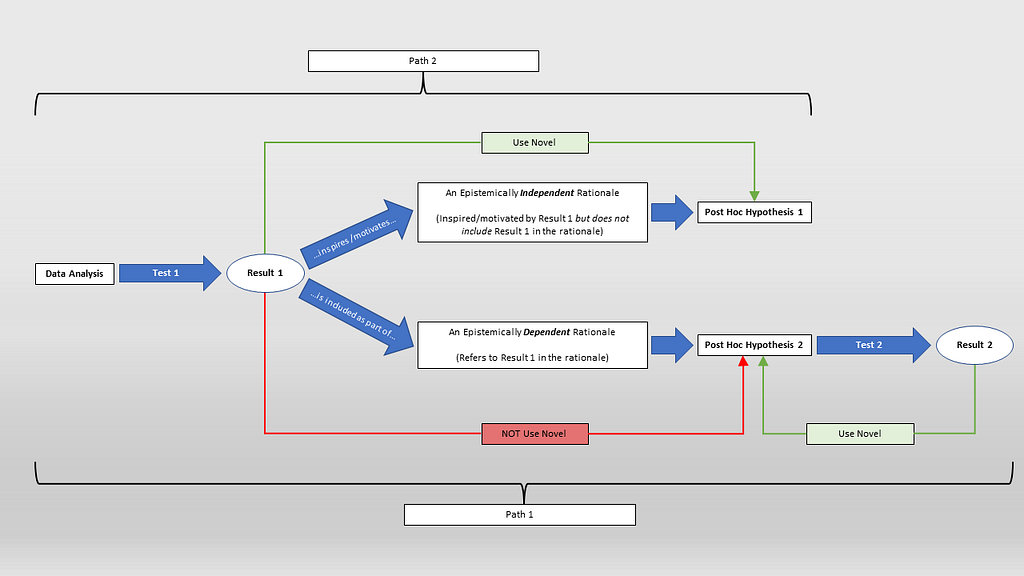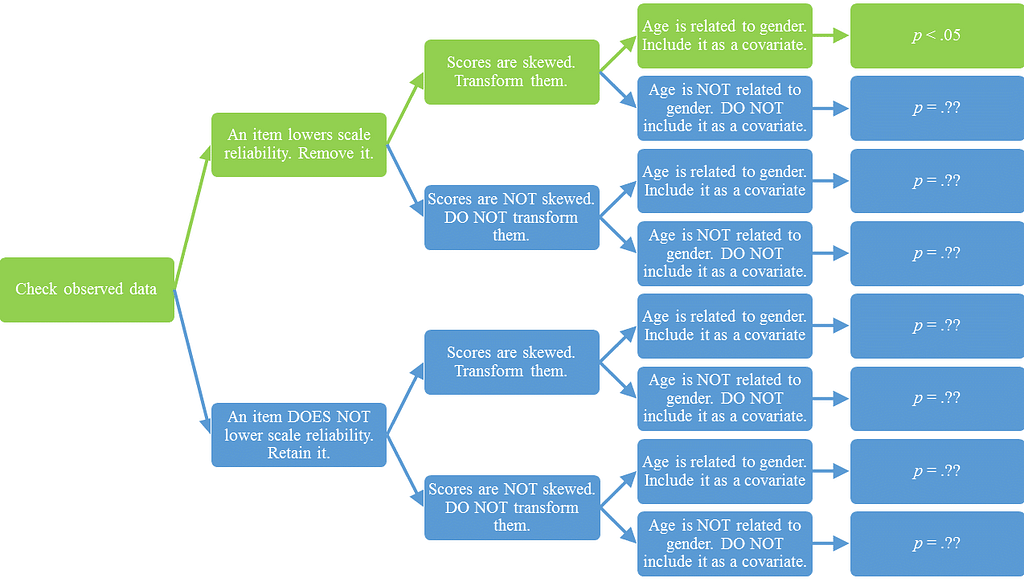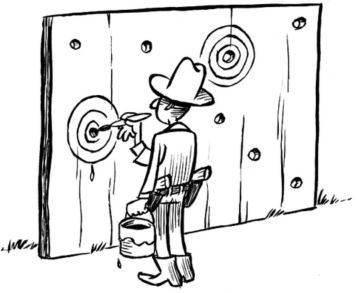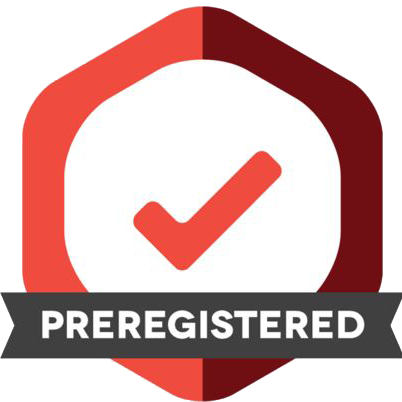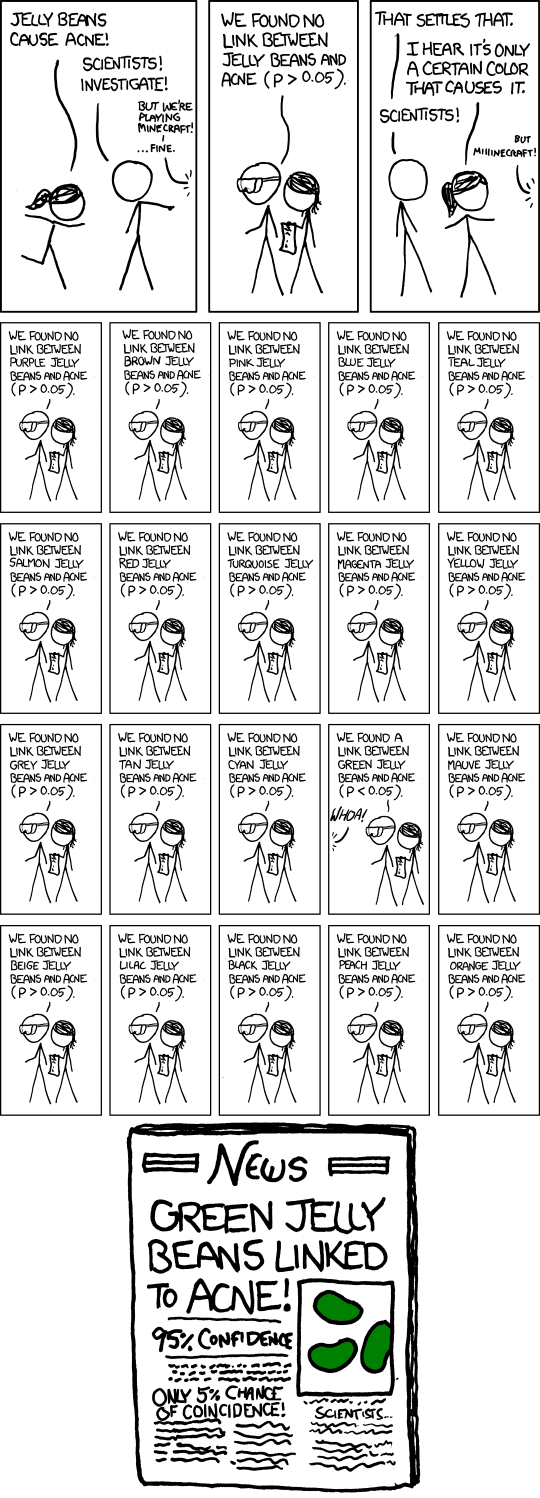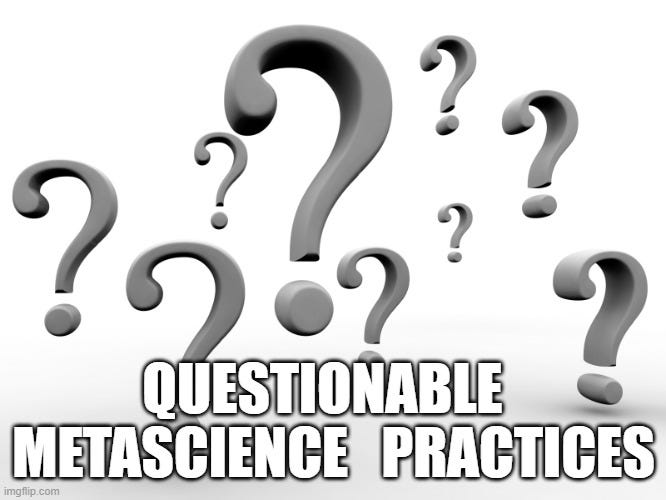
In this new article, I consider questionable research practices in the field of metascience. A questionable metascience practice (QMP) is a research practice, assumption, or perspective that’s been questioned by several commentators as being potentially problematic for metascience and/or the science reform movement. I discuss 10 QMPs that relate to criticism, replication, bias, generalization, and the characterization of science.
